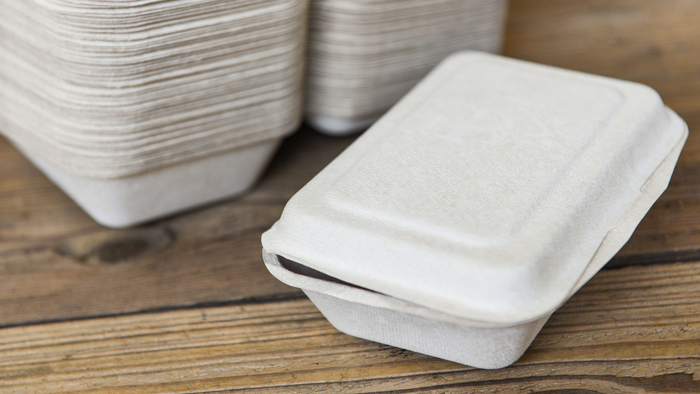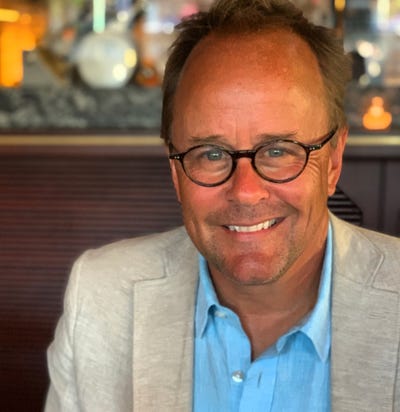GreenScreen Certification shows packaging is free from PFAS
A new standard, GreenScreen Certified, determines that packaging is free from thousands of chemicals that could leach into food. See how it works.

Most of the conversation around environmentally friendly packaging hinges on sustainability. Packaging clogs landfills, forms islands of plastic in the oceans and floods landscapes with trash. Innovations that mitigate waste through recycling, composting, reuse or rapid material breakdown are celebrated.
But packaging’s pitfalls touch on more than garbage; they also impact human and animal health. The American Academy of Pediatrics concluded in 2018 that chemicals in plastic interfere with children’s hormones, growth and development. Four years later, the Endocrine Society said that plastics contain and leach hazardous chemicals, including endocrine-disrupting chemicals (EDCs) that threaten human health.
Concern has pivoted from professional societies to the halls of Congress. Three Democrats in the U.S. House of Representatives introduced in October the No Toxics in Food Packaging Act of 2023, which would prohibit a variety of substances commonly used in packaging.
But food brands and consumers don’t need to wait for that bill to become law before they can feel more confident about the packaging that holds their soups, coffees and sandwiches.
A new third-party packaging standard, GreenScreen Certified, is the result of a collaboration between the Center for Environmental Health and Clean Production Action. Green Screen for Safer Chemicals, which operates the certification program, examines the chemistry of single-use and reusable packaging products; to be certified, products must be free from thousands of chemicals.
“It’s an issue that we thought was important to flag for people and raise awareness,” said Sue Chiang, food program director for the Center for Environmental Health. “Most people tend to assume if it’s a food-contact product like a bowl, plate or container, that those aren’t going to have any heavy toxic ingredients. The whole point of GreenScreen was to move the industry toward preferable chemistry and better products from a toxic standpoint.”
Packaging such as molded fiber packaging often sound straightforward, but many involve a range of stabilizers and other ingredients to keep them intact when they are filled with liquid or food. One school district embraced molded products made from sugar and touted to be compostable—until administrators learned that the products contained dangerous chemicals, Chiang said. The district had planned on incorporating the waste into compost piles on school properties.
To date, only a handful of companies have applied for the GreenScreen Certified seal for food service, including Eco-Products and NatureWorks for single-use, and Ahimsa for reusable. But Chiang anticipates increasingly more companies will pursue certification as public awareness about chemicals in packaging increases.

Packaging manufacturing shrouded in secrecy
“Don’t I have a right as a consumer to know what’s in packaging?” asked Nicole Whiteman, lead applications engineer at NatureWorks. “Having a service like GreenScreen is important, it allows me to share the confidential information that I don’t want my competitors to know with a toxicologist who can do the analysis of products and make the judgement.”
NatureWork uses field corn to create biopolymers out of lactic acid. The raw material NatureWorks manufactures is widely used by companies making compostable products. Whiteman said the packaging industry is at a “fork in the road,” where just being FDA-compliant for safety no longer is enough. As people seek to learn more about what’s in their packaging, programs like GreenScreen are offering solutions.
Similarly, Kyle Konczal, product manager for Eco-Products, said the company pursued GreenScreen certification for its Vanguard molded fiber products “to assure our customers that these products would no longer contain added per- and polyfluoroalkyl substances (PFAS). In addition, we wanted to assure them that the alternative chemistry we created also does not contain added PFAS or other chemicals of high concern or known regrettable substitutes.”
Mark Rossi, executive director of Clean Production Action, said in addition to disrupting human and environmental health, dangerous chemicals in packaging also interfere with attempts to bring about circular economy advances. “If you add toxic substances in, and then you draw them out, you are constantly circulating it,” he said. “Our work is focused on this. We want knowable, preferred solutions” to manufacturing today that adds toxic chemicals to products. “If companies create a BPA-free canning line, well what are they using instead? How do we know the new product isn’t regrettable? This is why certification is so important.”
It takes six to 12 months for companies to become GreenScreen Certified, Rossi said. The biggest hurdle is a lack of supply chain transparency. To be certified, products must disclose all ingredients in their manufacturing, but full transparency is rare in the packaging industry.
“I find it deeply disturbing that we have a system that allows the use of these toxic chemicals largely unexamined and unregulated in products,” he said. “And I have this view that you need to create systems that avoid this stuff in the first place.”
Read more about:
PackagingAbout the Author
You May Also Like




